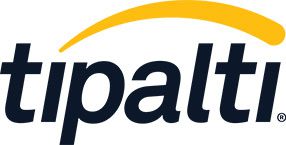
Finance teams specifically
For finance teams, the challenges presented in the shift to working from home have come with an increase in workload as the focus for many businesses has switched to how to scale. From recent research, we know that a quarter (23%) of CFOs see international growth as a top priority.
However, time is of the essence to aid and support this priority. Almost a third (29%) of respondents say they have seen more manual finance tasks in the past two years. Nearly a fifth (16%) admit that keeping finance operations capable of supporting growth is a challenge.
In addition, the research with IFOL found an overwhelming majority (73%) of finance professionals say staff productivity and morale in the finance and AP department is a concern. 78% say too much manual work is overwhelming for teams.
A focus on eradicating time-consuming manual tasks has become key to achieving a healthy work-life balance. This is important both for employees and the employer’s business health. Indeed, Oxford University researchers found that happy employees are up to 13% more productive.
Net net: happy employees can help businesses achieve ambitious growth plans. So, what to do?
What to do?
When it comes to manual finance processes, accuracy is all important. When employees must toil to sustain an increasing workload, stress levels inevitably rise. In fact, research shows about a third of finance professionals ranked stress on the AP team as one of the main issues caused by processing challenges.
The mental health of finance teams is important, and this is not just an HR problem. Enhancing ways of working for individuals needs to be part of the solution. If this is not addressed proactively, the risk is that staff retention becomes an increasing threat and adds an additional challenge. Current competitiveness in the labour market only makes this worse.
From identifying issues in workflows and employee performance, to knowing when to leverage technology, the following analysis explores what finance leaders need to focus on in 2022 – and beyond.
Manual work is grinding down finance teams
Clunky, manual workflows cause a multitude of problems for finance teams. Beyond simple inefficiencies – 63% of finance professionals have received feedback or criticism from their wider business colleagues – visibility reduces, error rates increase, and relationships with customers and suppliers deteriorate if deadlines are missed. What is worse, manual work creates process bottlenecks. These then incur higher resourcing costs, with a potential loss of profits. Simply put, manual processes do not scale. If a business maintains the status quo, growth means hiring more and more staff for mundane, usually low value-added work. This is a poor way to run a sustainable business capable of growing.
Despite the number of AP teams benefitting from automation – they have almost doubled, from 5% in 2019 to 9% at the end of 2021 – the adoption of AP automation is slow. Only half (54%) are now capitalising on the available technology.
Yet, without automation, finance teams spend too much time processing invoices, manually entering data, chasing down approvals, processing supplier payments, dealing with supplier inquiries – and correcting manually introduced errors. In fact, over half (56%) of respondents spend over 10 hours a week processing invoices and supplier payments. Per year, this equates to around 65 days being wasted on what is low-skilled manual processing. This time which could focus on more strategic initiatives.
Using automation to level up team morale by alleviating workloads
Low-level administrative work drags finance teams down. It creates a perfect pressure storm. Keeping track of rapidly changing priorities when juggling mundane, time-intensive work is unsustainable. It leads to burnout or boredom, or both. Employees who must suffer from a lack of stimulating work, deliver productivity dips.
In this context, finance leaders must recognise that automation represents a lifeline. The introduction of the appropriate technology stack is capable of helping to manage multiple large-scale projects while establishing an employee-friendly environment. Together these contribute to improved morale and less stress among teams.
Integrating automation not only mitigates the risk of high turnover levels but, crucially, it opens doors for business growth. It frees up financial departments from outdated (manual) processes. Teams can then optimise 9 to 5 working days by spending time on the tasks that matter.
Amid the Great Resignation (which has seen employees leaving jobs at a rate not seen in over a decade), it is crucial that finance teams are looking for ways to reduce the pressures on financial employees in order to retain staff. If employees stay unsatisfied, the risk is that they will look for alternative employment. That could leave finance teams even more exposed while hampering the satisfaction of growth agendas.
The CFOs responsibility
Our Swiss Army CFO research highlighted that 97% of UK CFOs believe their role has become more complex in the last two years. From spearheading sustainable initiatives to navigating the uncharted waters of Brexit and aiding international growth, they are having to wear multiple execution hats. They need finance teams to support such strategic objectives. Unfortunately, those businesses which do not adopt finance automation will struggle to find the time to support strategic initiatives. They are drowning in the minutiae of processing invoices, managing approvals, making payments, correcting errors, etc.
The business needs to:
- recognise which tasks finance teams are spending too much time on
- identify early signs of team burnout (missed deadlines, increased employee turnover, etc.)
- decide what tasks automation could improve
- understand how finance teams might refocus to scale support for overall growth plans.
Final thoughts
Fast growth businesses quickly outgrow finance teams burdened with outdated manual processes. As businesses scale up, finance teams risk employee burnout as those employees try to keep up. Such burnout leads to dips in productivity, which negatively impacts a business’ operational health.
Those finance leaders who understand how to integrate automation into financial workflows will find a long-term solution that combats burnout and frees up financial expertise for application to strategic initiatives.

Tipalti enables high-growth companies to scale quickly by making payables strategic with operational, compliance, and financial controls. Companies can efficiently and securely pay thousands of partners and vendors in 196 countries within minutes. Thousands of companies, such as Amazon Twitch, National Geographic, Business Insider, Hopin, Cazoo and Time Out use Tipalti to reduce operational workload by 80 percent and accelerate the financial close by 25 percent, while strengthening financial controls and spend visibility.

























